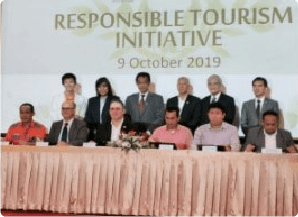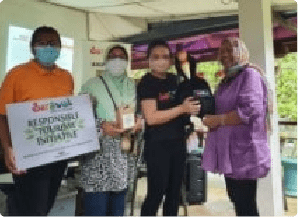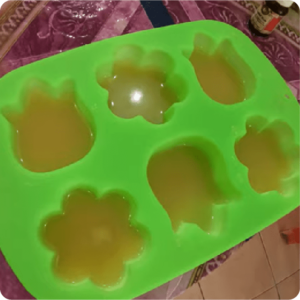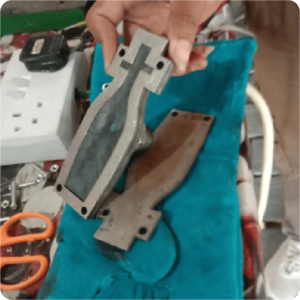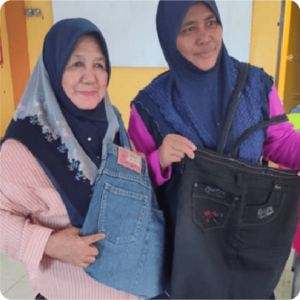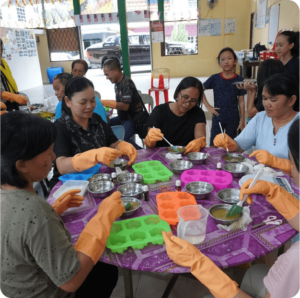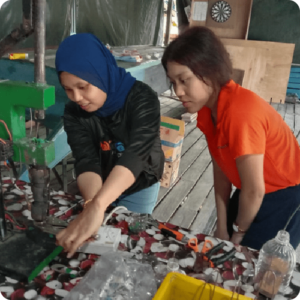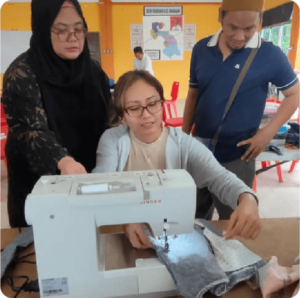Consume responsibly, practice sustainability, and give hope for the future one step at a time.
Sustainability Goal 12 (SDG12) of the United Nations’ Sustainable Development Goals (SDGs) focuses on ensuring sustainable consumption and production patterns. This goal emphasizes reducing waste, managing natural resources efficiently, and promoting sustainable lifestyles. By practising responsible consumption and production, we can mitigate environmental impacts, support economic growth, and improve the quality of life for future generations.
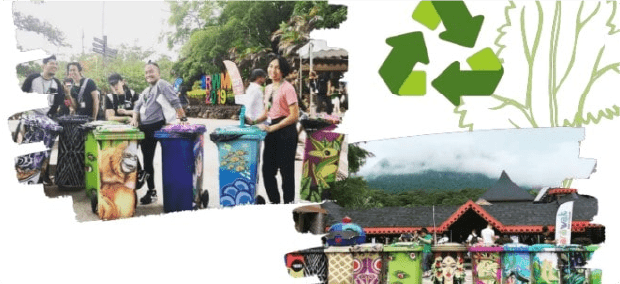
Sarawak Tourism Board has partnered with Spativate on the #Urbins (Urban + Bins) x RWMF, a pilot project aimed to inspire members of the public on the significance of caring for the environment. This initiative has given the members of the public a different perspective on “rubbish” and how one can be more environmentally friendly.
It is to create and give meaningful functions to the bins with creativity and ’soul’ added to it to make it something practical and integral in our daily lives. Sarawak Tourism Board got members of the local community to submit their attractive and innovative designs for the recycling bins. 15 of the unique and attractive bins were chosen and were placed around the vicinity of the festival ground throughout the 3 days.
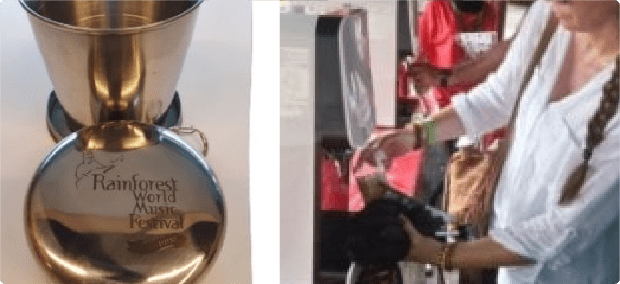
Water refill stations at RWMF were among STB’s many efforts to make the festival more sustainable as festival-goers were encouraged to bring their own reusable water bottles. This initiative has helped reduce the consumption of single-use plastic water bottles.
It was considered the biggest impact at RWMF2019. It was commendable for STB to take such a bold step to reduce their plastic footprint. Water stations situated throughout the festival grounds provided clean drinking water for free throughout the 3-day festival. Festival-goers could also purchase collapsible cups at the festival.
STB’s message was simple: to encourage festival-goers to bring their own recyclable water bottles and get water from the water stations to reduce the usage of plastic water bottles and at the same time, reduce waste which is harmful to the environment.
STB used shuttle buses to bring festival attendees from the city and a nearby venue to the festival grounds. It helps to reduce traffic congestion and minimises carbon footprint.
Other recycling projects include repurposing previous year’s STB advertising banners to make tote bags for festival gifts and souvenirs.
STB has worked together with Biji-Biji Initiative for the past two years to synchronise waste management strategies through various waste stations, enlisting the assistance of local university students and mobilising volunteers. The eco-warriors disseminated messages about recycling and food waste composting to raise public awareness.
Moop (Matter out of Place) patrol was one of the Greening Initiative take away, which ensured that the festival site was clean and waste-free. Cleaning up the festival grounds would be a collaborative effort between festival attendees and volunteers.
Aside from the initial planning process, RWMF considers sustainable sourcing in the supply chain by seeking alternatives and eco-friendly products. STB has also worked closely with food and beverage suppliers to choose biodegradable tableware rather than polystyrene plastic plates and cutlery.
Besides this, STB partnered with Canard Media Sdn. Bhd. to implement a biodegradable solution to waste generation at the Food Mart. All materials were procured from Malaysian businesses, either located in Kuala Lumpur or Kuching. The procured products and services include food waste management services, expertise, local recycling service, locally owned homestay, printing, workshops and more. By sourcing from local businesses to help support local businesses, local economic vitality reduces carbon footprint and saves energy.
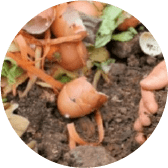
STB collaborated with Biji-Biji Initiative and WormingUp, Kuching-based social enterprises that collect and redirect leftover food into compost bins. These organic materials were donated to farmers for composting and given to worm farms to make bio-protein.
In conjunction with the Rainforest World Music Festival (RWMF) 2024, held from 28th to 30th June 2024 at the Sarawak Cultural Village, Sarawak Tourism Board aims to promote a green and sustainable festival experience. This aligns with the Sustainable Development Goals (SDGs) set forth by the United Nations. Therefore, Sarawak Tourism Board (STB) provided a pavilion called RWMF ‘Green Ruai’ as a centre to showcase greening innovations, initiatives and sustainable practices for agencies and festival attendees to collectively learn, educate and contribute to maintaining a green and safe environment, ensuring sustainability for future RWMF. Invitations were sent to the potential agencies to showcase their greening initiatives and innovations at the RWMF ‘Green Ruai’. RWMF ‘Green Ruai’ provided exposure on the agency’s greening initiatives through the festival goers’ participation and media features such as Astro Awani, TVS and Cats FM.
Stakeholders and Greening innovation/practices
Sarawak Energy Berhad: This exhibit showcases off-grid solar power solutions, underscoring the importance of renewable energy in reducing carbon footprints. Their solar power will be powering the Green Ruai pavilion. Visitors can witness firsthand how solar power can revolutionize energy consumption at festivals as well as their green innovation in other sustainable energy collections, such as Hydrokinetic Turbine for electricity generation, Utilisation of Balingian Fly Ash into Construction Materials, Hydrogen system demonstration kit, E-Mobility Initiatives and Electric and Fuel Cell Mobility.
Sarawak Skills: Demonstrating the integration of hydroponics with IoT, this exhibit merges aquaculture and hydroponics, showcasing innovative and sustainable farming techniques. It’s a glimpse into the future of agriculture, where technology and nature work hand in hand.
WormingUp: This social enterprise, in collaboration with PEPSI, will be building a plastic sculpture that serves as a shade and benches, which will be lit up by solar power provided by Sarawak Energy at night. WormingUp also has a booth for postcard selling and making, featuring postcards made from seed paper. By purchasing a postcard for RM5, festival-goers can learn about postcard-making.
Evolving Brilliance Technologies (in collaboration with CGPT Consulting): These organisations will showcase their technology integration for ESG Reporting equipped with Generative AI integration, using a tool called CarbonGPT.
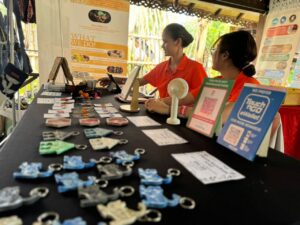
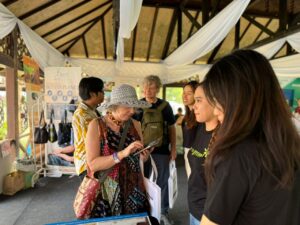
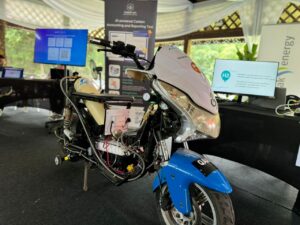
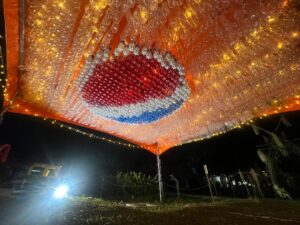
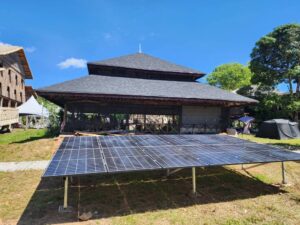
A cornerstone of STB’s responsible tourism strategy is effective waste management. The goal is to minimise the festival’s environmental impact by ensuring that attendees’ waste is properly segregated and managed, thereby reducing landfill contributions.
Waste Segregation Categories:
● Aluminium
● Paper
● Plastic
● General Waste
● Food Waste
Besides waste segregation purposes, ten (10) eco-stations are provided during the festival in order to educate festival goers on the importance of waste segregation. Detailed reporting on the amount of waste generated at the RWMF as well as the methods of disposing of the waste through the festivals helps assess the effectiveness of these waste management practices and identifies areas for improvement. It’s a meticulous process, but one that yields significant environmental benefits.
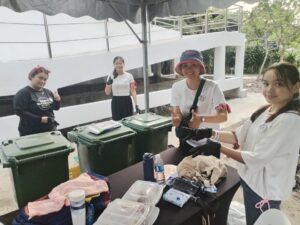
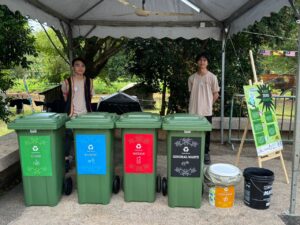
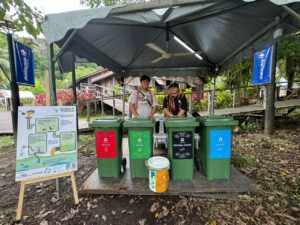
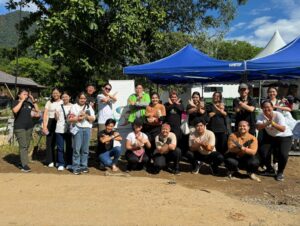
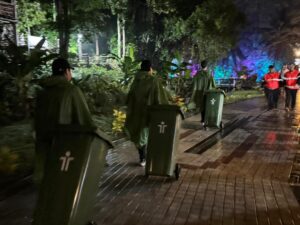
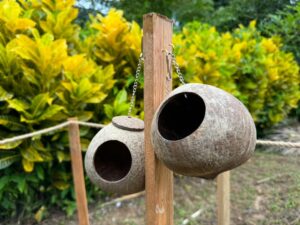
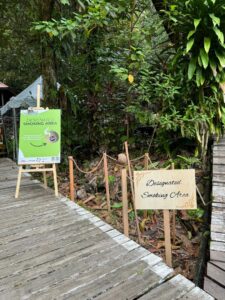
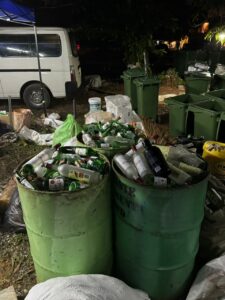
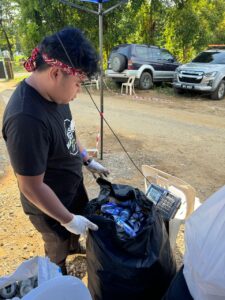
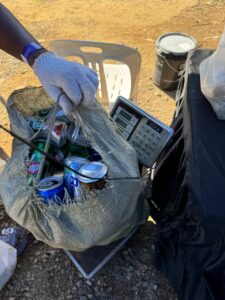
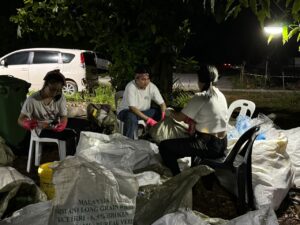
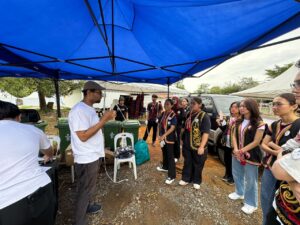
Homestays Initiative (Phase 5)
Homestay Revisit Programme 2023
To provide recycling and upcycling training for the 11 registered homestays based oneagerness, interest and
commitment + 2 New Registered Homestay.
Visted homestays
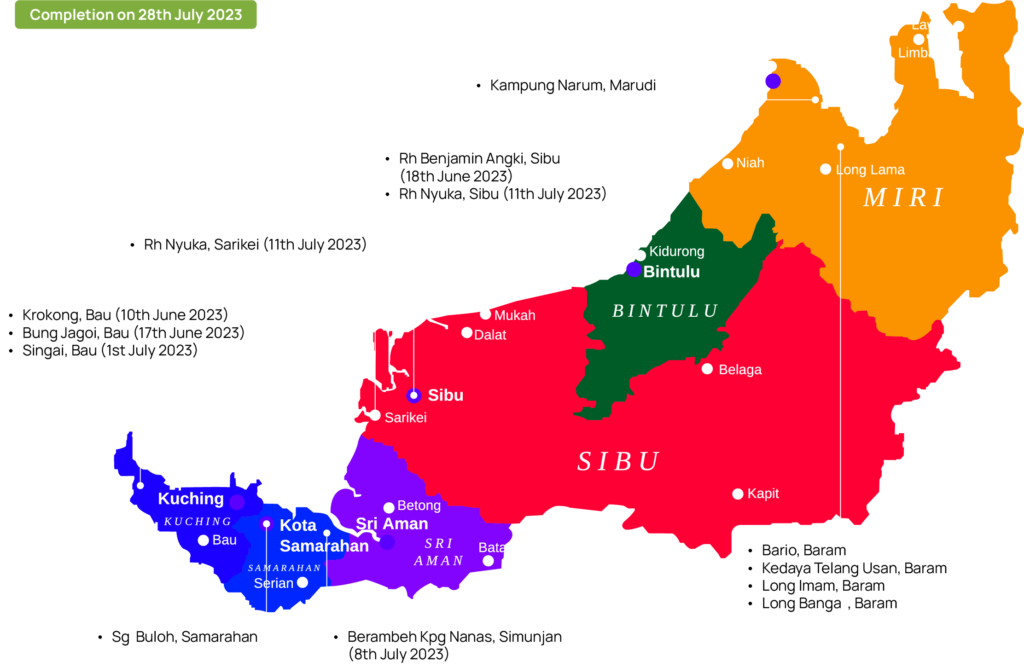
● HOMESTAY KROKONG
● HOMESTAY BUNG JAGOI
● HOMESTAY RUMAH BENJAMIN ANGKI
● HOMESTAY BADUL
● HOMESTAY BARAMBEH KPG NANAS
● HOMESTAY RHNYUKA@SIBAR
● HOMESTAY RHPENGHULU PHILIP KAYAK
● HOMESTAY BARIO
● HOMESTAY KPG NARUM,MARUDI
● HOMESTAY SGBULU,ASAJAYA
● HOMESTAY KEDAYAT ELANGUSAN
● HOMESTAY LONGIMAN
● HOMESTAY LONGBANGA
•Advocated SDG 4, SDG 12 and SDG 17 for
this initiative
•Awareness of waste upcycling to the
homestay operators
13 Homestays were trained on recycling and upcycling skills respectively.
Homestays Initiative (Phase 4)
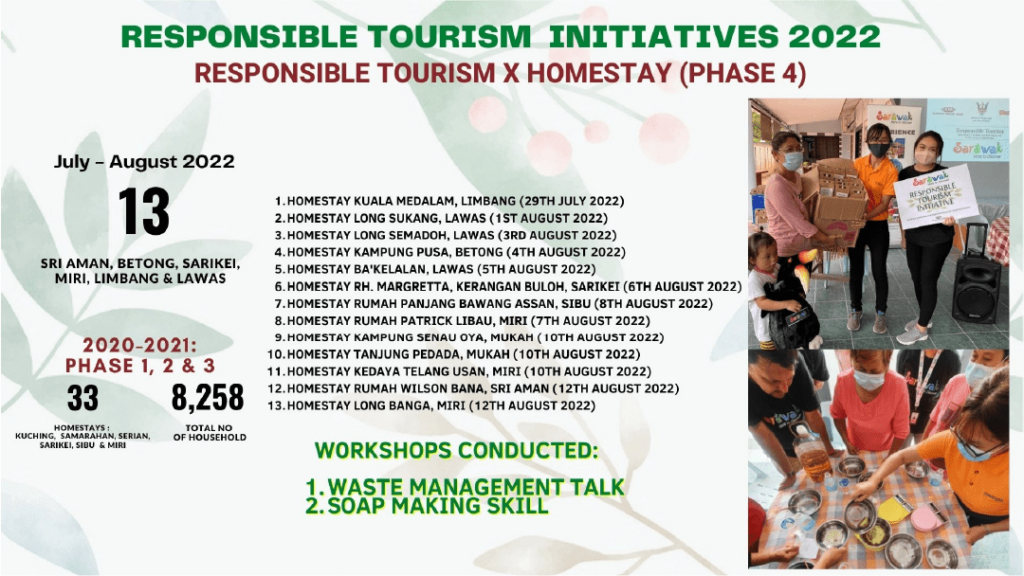
Homestays Initiative (Phase 3)
10
Kuching, Serian,
Betong & Miri
1,750
Household
October – December 2021
- Homestay Melayu Kpg Maludam, Betong (15 October 2021)
- Kampung Telok Melano Sematan (16 October 2021)
- Homestay Uma Belor Sungai Asap, Belaga (22 October 2021)
- Homestay Kuala Sibuti, Miri (23 October 2021)
- Kampung Narum, Marudi (24 October 2021)
- Rumah Hillary Tawan Achai, Miri (25 October 2021)
- Homestay Long Iman, Mulu (27 October 2021)
- Kampung Lobang Batu, Serian (6 November 2021)
- Bario Homestay, Miri (9 November 2021)
- Bung Jagoi Homestay, Bau (3 December 2021)
2020: Phase 1 & 2
23
Homestay:
Kuching, Samarahan, Serian,
Sarikei, Sibu & Miri
6,508
Household
Workshops Conducted
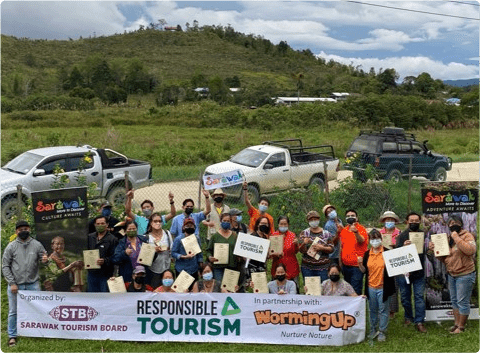
Waste Management
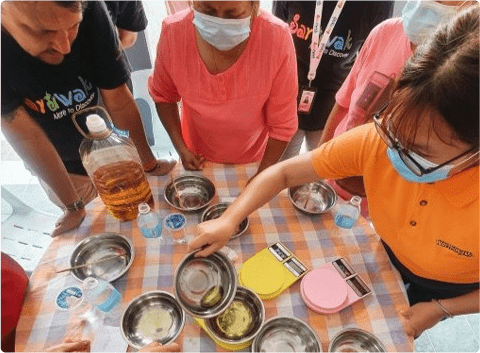
Soap Making Skill
STB initiated its first Waste Management Programme with local hotels in efforts to promote Responsible Tourism. The initiative was launched by YB Datuk Haji Abdul Karim Rahman Hamzah, Minister of Tourism, Arts and Culture Sarawak. It is a long-term partnership project with WormingUp Sdn. Bhd., to raise awareness about proper food waste management and reduce its disposal at landfills.
Six local hotel partners participated in the initiative, including the Hilton Hotel, Riverside Majestic, Merdeka Palace, Grand Dormani Rajah Court Hotel, Kuching Park, and UCSI Hotel. The initiative was further expanded to local restaurants, shopping malls in Kuching, and local communities (B40/registered homestays).
